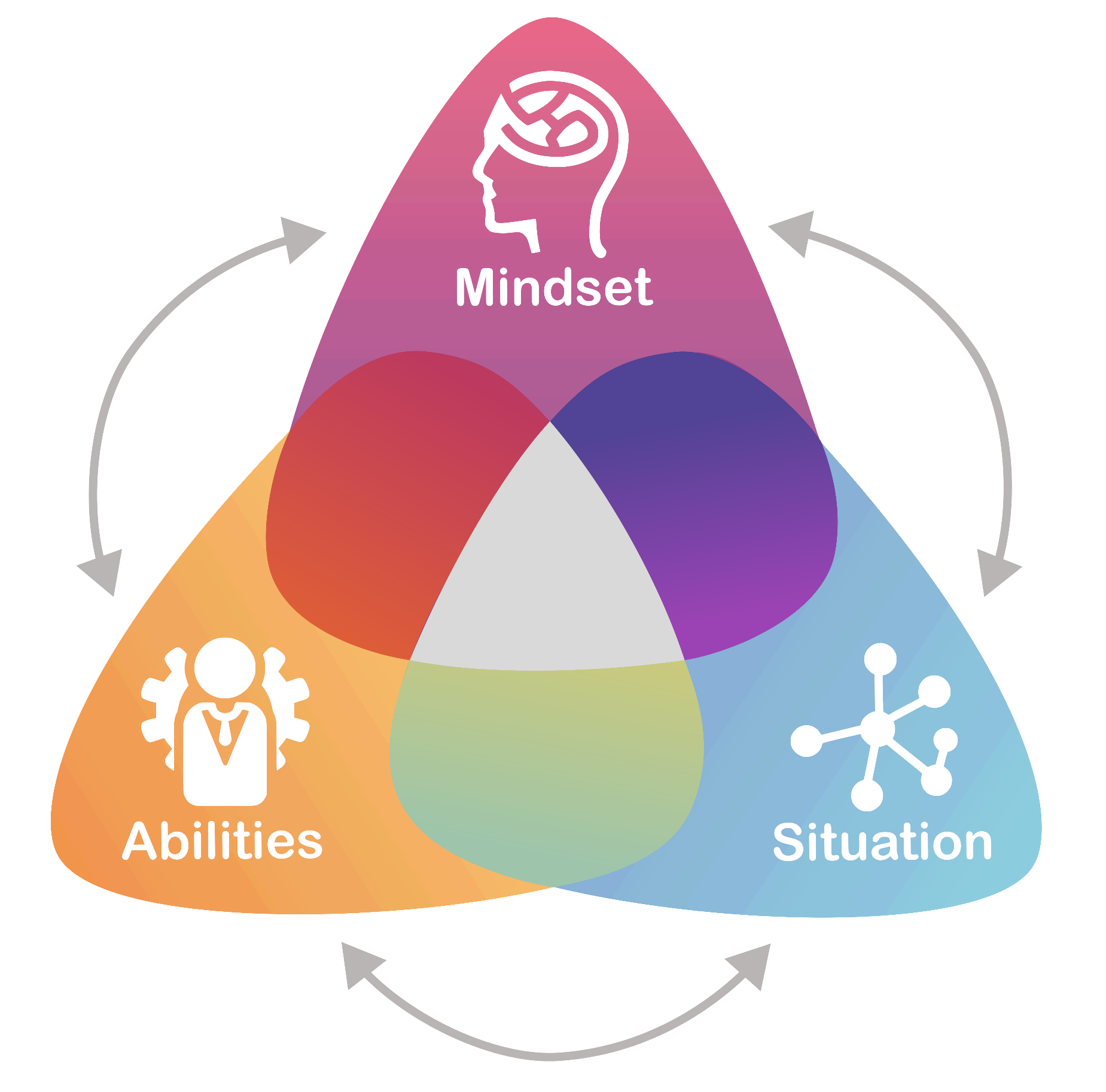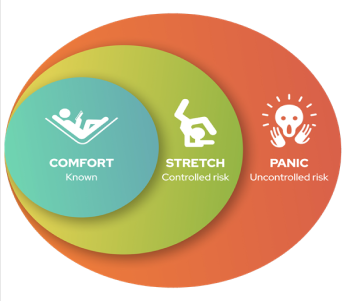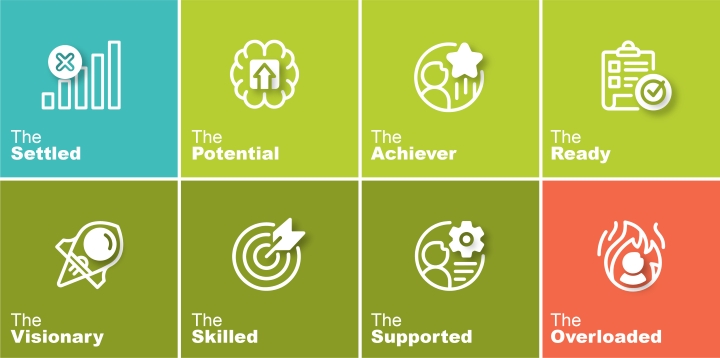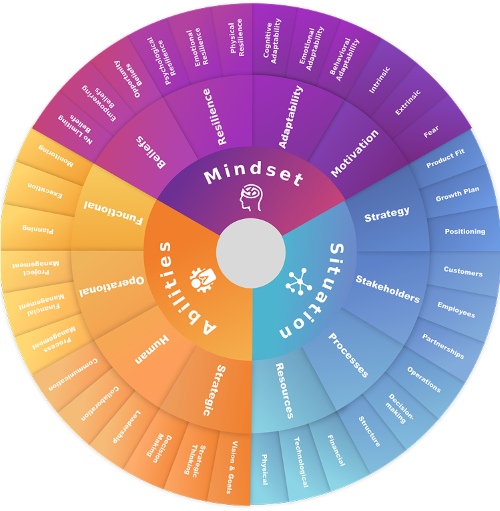The Three Pillars
Behaviour is shaped by how you think, what you can do, and the environment around you.
This framework draws on the COM-B model by Susan Michie, widely used in healthcare, education, and organizational change.
It shows that Motivation, Capability, and Opportunity must align for meaningful behavior change.





